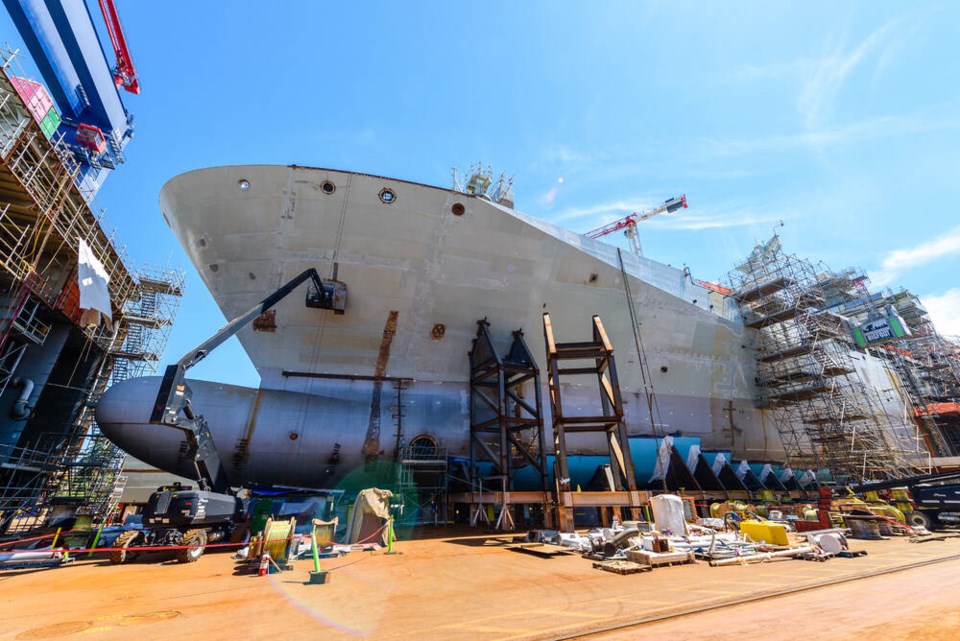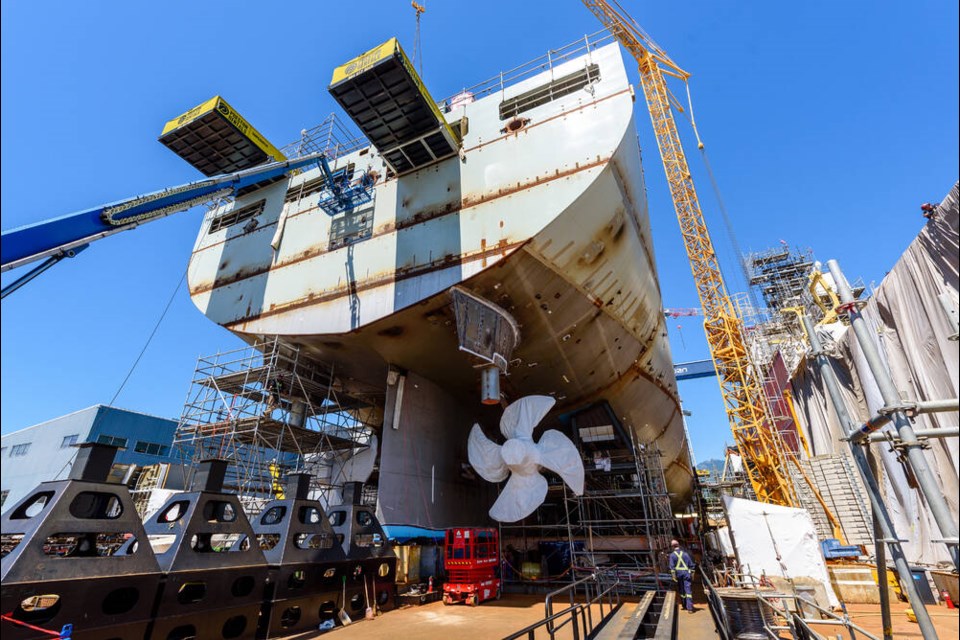The federal government has quietly increased the contract price being paid to Seaspan Shipyards to build two massive navy joint support ships by almost $1 billion.
Ottawa put out an emailed statement on the contract increase Aug. 2.
Four years ago, in June 2020, the federal government awarded a build contract to Seaspan for the full construction of the two joint support ships with an original value of $2.448 billion.
But this month, Ottawa said that contract has now been increased by $951 million, for a revised total contract value of $3.398 billion.
“This amendment follows a thorough review of the budget forecast, including a third-party analysis, to establish the revised target cost,” the government's statement read, adding the original shipbuilding contract was also negotiated prior to the COVID-19 pandemic.
According to Ottawa, the increased contract price resulted from several factors, including “lessons learned from developing a new type of warship for the (Royal Canadian Navy), COVID-19 impacts that resulted in labour and supply chain disruptions, economic price adjustments, foreign exchange rate fluctuations, and changes in labour rates.”
According to Seaspan, building of the first two joint support ships, HMCS Protecteur, has been “challenging” because of the pandemic, “but we are now on track to launch the vessel this year, and deliver it to the Navy in 2025.”
The shipyard added while costs for the first joint support ship went up, improvements in efficiencies are already being seen in construction of the second vessel, which has an expected completion date of 2027.
Once delivered, the joint support ships will deliver fuel and supplies to Canadian Navy vessels at sea, along with medical services and provide facilities for helicopter maintenance repair.
At a keel-laying ceremony in 2023, Seaspan CEO John McCarthy said the shipyard has become more efficient in building the second joint support ship.
“We have seen a nearly 40 per cent reduction in labour hours from the first ship to the second ship on the first 25 per cent of the blocks,” he said. “That is just a phenomenal achievement.”
Seaspan has also been busy designing the next ship in the federal program, a polar icebreaker.
The icebreaker will be almost as big as the joint support ships, but 5,000 tonnes heavier, with up to 60-millimetre steel.
In 2021, Seaspan celebrated 10 years of building under Ottawa’s national shipbuilding program.




